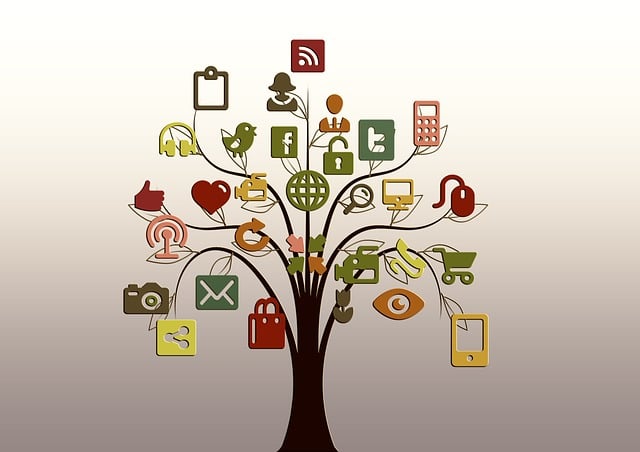Globalisation in the film industry and its ramifications for me as a knowledge worker.
What is globalisation?
Globalisation refers to the communication and cooperation of individuals, businesses, and governments. This ideology influences the allocation of international commerce, from ideas to trade (Matusitz, 2011). Some academics trace the origins of globalization back to the third millennium BC (Andre Gunder, 1998). With human connection comes the impulse to share information and resources; globalization is a contemporary phrase that refers to a more sophisticated social and economic exchange.
There are four major subcategories of globalisation:
Economic globalisation refers to the worldwide trade of products across numerous financial networks.
Political globalisation: IGOs and INGOs are increasing, as are social movements.
Cultural globalisation refers to the emergence of cultural differences that reach other cultures in order to spread knowledge and promote growth.
Media globalization refers to the worldwide growth of intercommunications and how they function. That is, technology and its ideas contribute to the ongoing invention of media.

Globalization and Consumerism:
We live in an age when most of what we consume, whether physically or cognitively, is the result of globalization. Media thrives in a culture structured and driven by consumerism, and it plays an important part in the advancement of globalization (unesc, 2010). What might we discover about ourselves if we looked inward? It would be beliefs and behaviors formed by abundant information and representations in the media, defining who we think and society considers to be a virtuous and contemporary person.
Hollywood’s reliance on globalisation.
Globalisation has an influence on both media audiences and the media industry itself. Broadening the market benefits distribution and profit significantly. This is particularly evident in the film business, where the globalization of such a significant provider to entertainment and societal impact is measured by its ability to reach a worldwide audience. The Hollywood film industry’s success is due to its worldwide reputation. For example, “Avengers: Age of Ultron,” the newest smash in the Avengers series, arrived in cinemas recently and grossed more than $200 million in a single weekend. The unexpected thing, however, is that it made $200 million outside of the United States before the film ever released in the country” (Sliwinski, 2015). Globalisation promotes the spread of foreign films, boosting rivalry for the Hollywood film business (Sliwinski 2015). This allows for a varied range of representation.

Despite the rising popularity of international films, Hollywood remains the film industry’s behemoth, producing $43.4 billion in revenue in 2017 and expected to rise even more each year (Robb, 2018). The drawback of Hollywood film globalization is that the business may create a formula that works for a certain culture and then run with it until all uniqueness is gone. This is apparent in so many blockbuster films: simplistic plots with no rich narratives or characters since the producers know what works and fail to explore the passion behind film and aim for what would appeal to the audience. (Brook. 2014).
My own encounter with globalization as a knowledge worker in the film business.
since a knowledge worker aiming to work in the film business, understanding globalization is critical, since it will help me to apply my newly acquired knowledge to the projects I develop. Wilczyńska, Batorski, and Sellens (2016). My objective is to make a successful picture that does not succumb to the culture of easy consumption, which is a film plagued with storyline and character cliches in order to attract an under-stimulated audience while collecting as much money as possible. I would much rather utilize globalization to reach those that are underrepresented on film. There is a wide community of people who want to see themselves on screen, and since cinema and social media are so broad and intimate, my films can reach people’s hearts as well as their nations. McNary (2018).
My personal experience with globalization in the film business.
With the dissemination of foreign films, and films in general, I have been able to find aspects of myself that I feel would not have emerged otherwise. Through the depiction of sexuality in movies, I was able to perceive it as something normal rather than something to hide and be considered strange. I discovered not just my sexuality, but my acceptance and satisfaction in it. This was quite helpful as an adolescent who was first afraid of the unknown and mistakenly assumed that I was alone in my feelings. It is critical to globalise entertainment and convey authentic and heartfelt narratives that appeal to minorities. Without this, individuals, particularly children, would grow up thinking that their feelings and identities are not genuine and accepted.
How has globalization affected the film industry?
Globalization has had an effect on the film industry by enabling major cultural forces, such as Hollywood, to spread their work and influence in new markets, particularly Asian nations such as Japan, South Korea, and Indonesia.
How will globalization effect me personally?
On an individual level, globalization has had an impact on the standard of living and quality of life for people and families worldwide. The standard of living refers to the amount of money, comfort, material things, and requirements accessible to a certain social class in a specific geographic location.
How does globalization influence knowledge?
Globalization promotes the spread of knowledge and technology across borders. Paper was invented in China and spread to Europe over a thousand years. In today’s more interconnected society, ideas move quicker and via more channels.
How will globalization influence me as a student?
Globalization also requires you to be adaptive and resilient throughout your higher education journey, since it exposes you to a variety of uncertainties, dangers, and possibilities. When studying overseas or online, you may encounter culture shocks, language obstacles, academic discrepancies, and visa concerns.
What are the good effects of globalization?
Globalization enables businesses to discover lower-cost methods to manufacture their goods. It also boosts global competition, which lowers costs and gives customers a wider range of options. Lower prices allow individuals in both developing and wealthy nations to live more comfortably on less money.
How is globalization related to entertainment?
In the context of entertainment, globalization refers to the interconnection of many cultures achieved via the worldwide diffusion of material. The advent of streaming services such as Netflix and Disney+ exemplify this phenomena, since they provide a diverse range of material from across the world.
How is the film business growing?
Market trends: One of the most significant changes in the cinema industry is the emergence of streaming services and internet platforms. With the introduction of platforms such as Netflix, Amazon Prime Video, and Disney+, people can now view movies and TV episodes from the comfort of their homes.
How does globalization work?
How globalization works. Simply said, globalization is the process by which people and things may readily traverse boundaries. It is primarily an economic concept: the integration of markets, commerce, and investments with minimal obstacles that impede the flow of goods and services across countries.
What is the global knowledge economy?
The knowledge economy is a system of consumption and production that relies on intellectual capital. It specifically refers to the capacity to capitalize on scientific breakthroughs and applied research. Most highly developed economies rely heavily on the knowledge economy.







